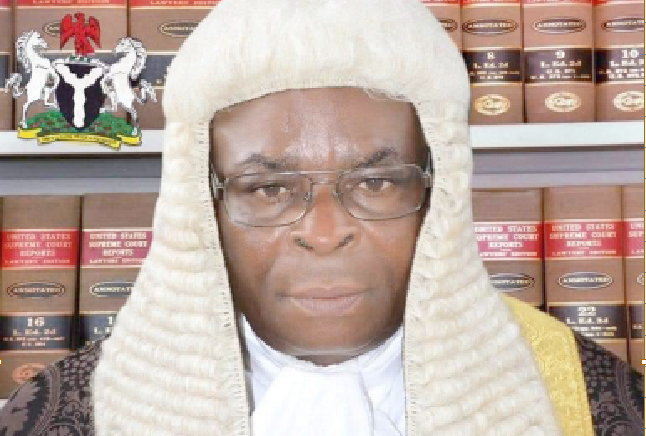The Court of Appeal in Abuja has overturned the controversial 2019 conviction of former Chief Justice Walter Onnoghen, marking the end of a legal saga that sent shockwaves through the nation’s judicial system.
The appellate court, led by Justice Abba Mohammed, discharged and acquitted Justice Onnoghen of false assets declaration charges, ordering the return of his four previously forfeited bank accounts. The ruling effectively nullifies the conviction handed down by the Code of Conduct Tribunal (CCT) that had precipitated one of the most contentious episodes in Nigeria’s recent judicial history.
The case, which drew widespread criticism when it first emerged, came to prominence just weeks before the 2019 presidential election when then-President Muhammadu Buhari suspended Onnoghen from his position as Chief Justice. The timing of the suspension, occurring merely eight hours after Onnoghen had announced plans to inaugurate judges for election petition tribunals, raised significant concerns about the independence of the judiciary.
The resolution came through a settlement between the federal government and Justice Onnoghen, with both parties acknowledging fundamental flaws in the original prosecution. Central to the settlement was the recognition that the Code of Conduct Tribunal had exceeded its jurisdiction by proceeding with the trial without first consulting the National Judicial Council (NJC), the body constitutionally empowered to handle disciplinary matters involving judicial officers.
The terms of settlement further established that the tribunal lacked authority to try and convict Justice Onnoghen after he had voluntarily submitted his retirement letter, which had been accepted by the then-President. This acknowledgment effectively invalidates the entire proceedings that led to his removal from office.
In the aftermath of the ruling, Senior Advocate of Nigeria Adegboyega Awomolo, representing Onnoghen, expressed gratitude to President Bola Tinubu and Attorney General Lateef Fagbemi for their roles in facilitating the resolution. The acknowledgment highlights the current administration’s apparent willingness to address what many had viewed as a historical injustice within the judicial system.

The case had originally sent ripples through Nigeria’s legal community, with the Nigerian Bar Association characterizing Onnoghen’s suspension as “a coup against the judiciary.” The unprecedented nature of the situation – the first time in Nigeria’s history that a sitting Chief Justice had been suspended and tried – had raised serious questions about judicial independence and the separation of powers.
The resolution of this case carries significant implications for Nigeria’s judicial system and constitutional democracy. It reaffirms the principle that proper procedures must be followed in addressing allegations against judicial officers, particularly the requirement to involve the National Judicial Council in such matters.
The Court of Appeal’s decision also serves as a reminder of the importance of maintaining proper checks and balances in governance, particularly concerning the judiciary’s independence. The ruling effectively acknowledges that even in cases involving high-ranking judicial officers, due process cannot be circumvented.
Looking back, the episode marks a dark chapter in Nigeria’s judicial history, where the head of the judiciary was removed from office under controversial circumstances just weeks before a major election. The timing and manner of the prosecution had led many observers to question whether the case was politically motivated.
With this ruling, Justice Onnoghen has finally received vindication, though the impact of his premature removal from office continues to resonate within Nigeria’s legal circles. The case serves as a crucial precedent for future handling of allegations against judicial officers and underscores the importance of following established constitutional procedures.
As Nigeria continues to strengthen its democratic institutions, this ruling stands as a testament to the judiciary’s capacity for self-correction and the importance of upholding constitutional principles, even in the face of political pressure. The resolution of this case may well contribute to preventing similar controversies in the future while reinforcing the fundamental principle of judicial independence in Nigeria’s democratic system.



